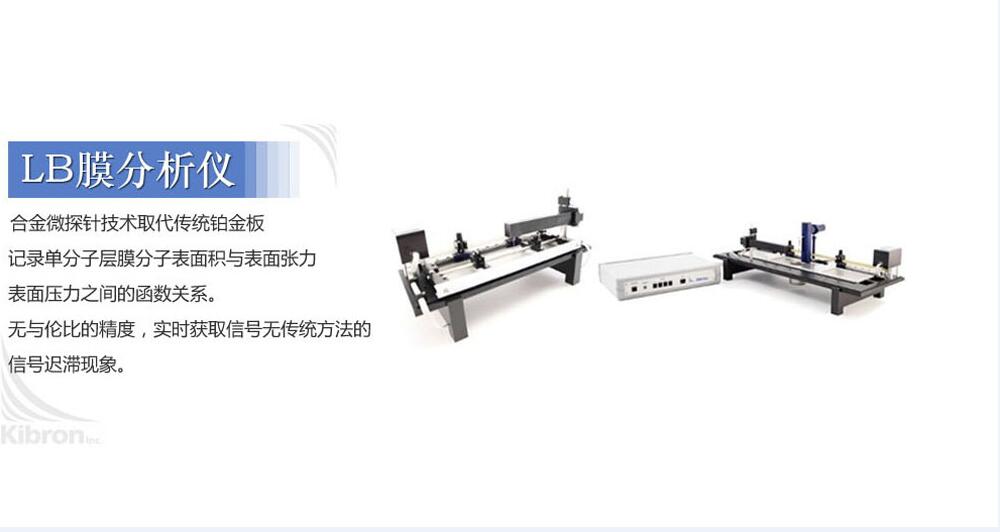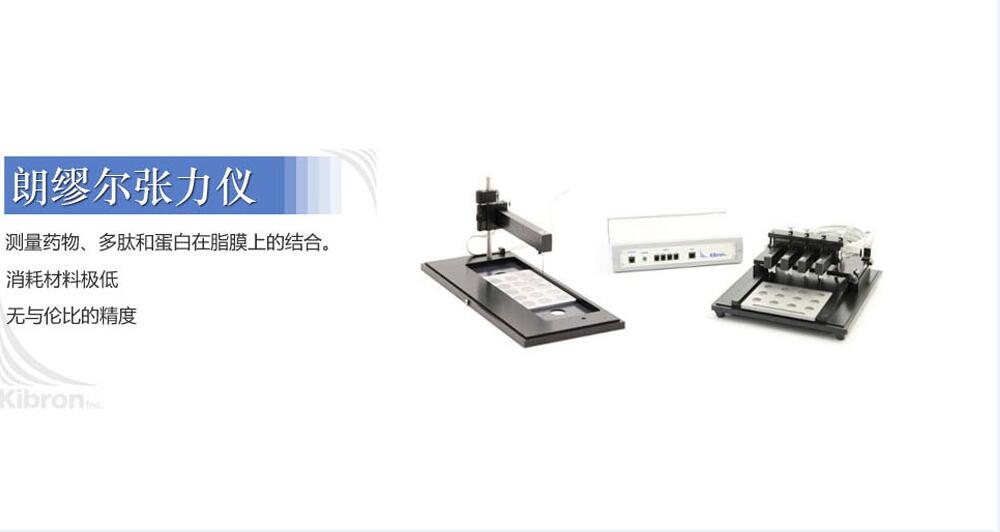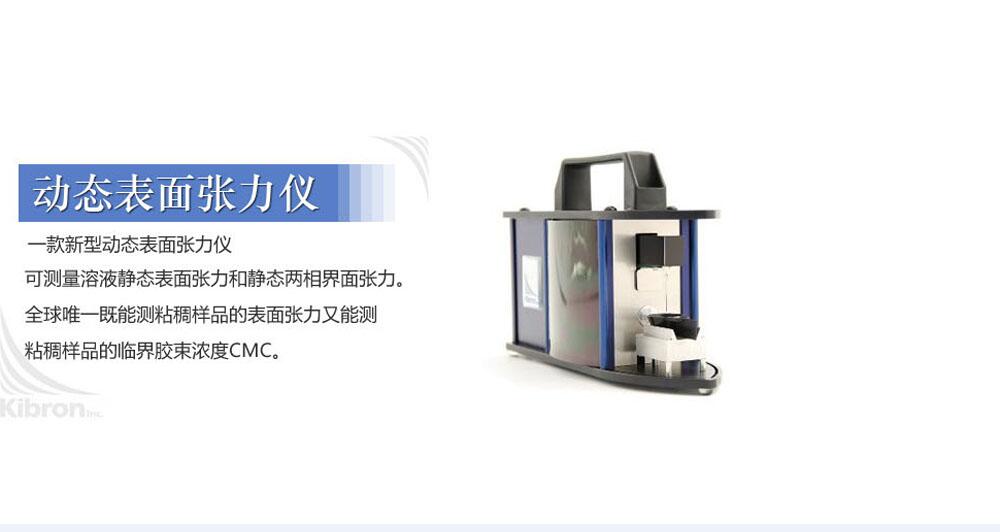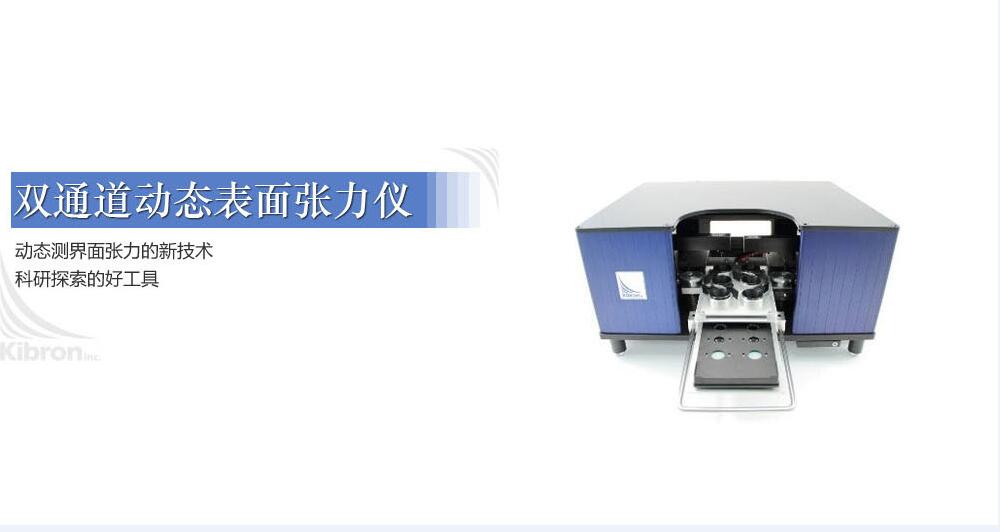合作客戶/
拜耳公司 |
同濟大學 |
聯合大學 |
美國保潔 |
美國強生 |
瑞士羅氏 |
相關新聞Info
推薦新聞Info
-
> 基于粒徑、速度、表面張力、黏度測定揭示塵粒?霧滴碰撞行為規律(三)
> 基于粒徑、速度、表面張力、黏度測定揭示塵粒?霧滴碰撞行為規律(二)
> 基于粒徑、速度、表面張力、黏度測定揭示塵粒?霧滴碰撞行為規律(一)
> 高鹽低滲油藏中超低界面張力表面活性劑多段塞調驅機理與應用效果(三)
> 高鹽低滲油藏中超低界面張力表面活性劑多段塞調驅機理與應用效果(二)
> 高鹽低滲油藏中超低界面張力表面活性劑多段塞調驅機理與應用效果(一)
> 鈉鉀離子濃度對礦井水和純水表面張力、噴霧霧化特性的影響(三)
> 鈉鉀離子濃度對礦井水和純水表面張力、噴霧霧化特性的影響(二)
> 鈉鉀離子濃度對礦井水和純水表面張力、噴霧霧化特性的影響(一)
> Layzer模型與Zufiria模型研究界面張力對Rayleigh-Taylor氣泡不穩定性的影響
應用不同組裝的磷脂酰膽堿對牛精漿蛋白的隔離——結論、致謝!
來源:上海謂載 瀏覽 1805 次 發布時間:2021-10-20
結論
首先,表面張力測量證明牛精漿具有非常好的表面活性,這可能與 BSP 蛋白。 二、朗繆爾薄膜法 先前被證明是相關的脂質單層模型 公牛精子的外細胞膜 [35],有助于表征 BSP 蛋白對脂質膜的親和力。 BSP 蛋白是 能夠到達被磷脂覆蓋的牛精子細胞表面,這要歸功于它們與磷脂酰膽堿和 它們自身的表面活性。 我們的假設是,由于它們自己的表面,它們首先穿透精子的外葉 活動然后他們留在那里因為與 磷脂酰膽堿。 最后,Langmuir 薄膜法也得到了 用于篩選已知的 BSP 蛋白螯合劑(如 LDL 和脂質體)的作用。 脂質體被證明是 與 LDL 一樣有效地防止 BSP 蛋白插入 磷脂層。 發現 LDL 和 脂質體:0.16–0.17 mg 磷脂酰膽堿/mg BSP。 我們不 還知道脂質體在 冷凍保存的時間尺度有一些生物學后果。 需要進一步的研究來分析每個的表面特性 BSP 蛋白及其對膜的作用。 此外,可以測試朗繆爾薄膜以檢測 BSP 對膜的親和力隨溫度的變化 [20]。 最后,朗繆爾薄膜法是一種 用于鑒定新的螯合劑的強大篩選方法 BSP 蛋白質。 這種方法可以適用于其他動物物種。
致謝
作者要感謝 IMV Technologies(法國) 其財政支持,Gérard Chatagnon 的量化 精漿中的蛋白質,凝膠電泳的 Véronique Solé,英語校正的 Maureen Collobert 和 Alain Sire 和 Patrice Papineau 的概念和實現 手套箱允許在受控的情況下使用 Langmuir 槽進行工作 大氣層。
附錄 A. 補充數據
與本文相關的補充數據可以在 在線版本,見 http://dx.doi.org/10.1016/j.colsurfb.2015.11。 034.
參考
[1] F. Ardon, S.S. Suarez, Cryopreservation increases coating of bull sperm by seminal plasma binder of sperm proteins BSP1, BSP3, and BSP5, Reproduction 146 (2013) 111–117, http://dx.doi.org/10.1530/rep-12-0468.
[2] P. Manjunath, J. Lefebvre, P.S. Jois, J. Fan, M.W. Wright, New nomenclature for mammalian BSP genes, Biol. Reprod. 80 (2009) 394–397, http://dx.doi.org/10. 1095/biolreprod.108.074088.
[3] V. Nauc, P. Manjunath, Radioimmunoassays for bull seminal plasma proteins (BSP-A1/-A2, BSP-A3, and BSP-30-Kilodaltons), and their quantification in seminal plasma and sperm, Biol. Reprod. 63 (2000) 1058–1066, http://dx.doi. org/10.1095/biolreprod63.4.1058.
[4] F.S. Esch, N.C. Ling, P. B?hlen, S.Y. Ying, R. Guillemin, Primary structure of PDC-109, a major protein constituent of bovine seminal plasma, Biochem. Biophys. Res. Commun. 113 (1983) 861–867, http://dx.doi.org/10.1016/0006- 291x(83)91078-1.
[5] N.G. Seidah, P. Manjunath, J. Rochemont, M.R. Sairam, M. Chrétien, Complete amino acid sequence of BSP-A3 from bovine seminal plasma. Homology to PDC-109 and to the collagen-binding domain of fibronectin, Biochem. J. 243 (1987) 195–203.
[6] J.J. Calvete, K. Mann, L. Sanz, M. Raida, E. T?pfer-Petersen, The primary structure of BSP-30K, a major lipid-, gelatin-, and heparin-binding glycoprotein of bovine seminal plasma, FEBS Lett. 399 (1996) 147–152, http:// dx.doi.org/10.1016/s0014-5793(96)1310-5.
[7] D. Salois, M. Ménard, Y. Paquette, P. Manjunath, Complementary deoxyribonucleic acid cloning and tissue expression of BSP-A3 and BSP-30-kDa: phosphatidylcholine and heparin-binding proteins of bovine seminal plasma, Biol. Reprod. 61 (1999) 288–297, http://dx.doi.org/10.1095/ biolreprod61.1.288.
[8] P. Manjunath, M.R. Sairam, J. Uma, Purification of four gelatin-binding proteins from bovine seminal plasma by affinity chromatography, Biosci. Rep. 7 (1987) 231–238, http://dx.doi.org/10.1007/bf01124794.
[9] L. Desnoyers, P. Manjunath, Major proteins of bovine seminal plasma exhibit novel interactions with phospholipid, J. Biol. Chem. 267 (1992) 10149–10155.
[10] L. Desnoyers, P. Manjunath, Interaction of a novel class of phospholipid-binding proteins of bovine seminal fluid with different affinity matrices, Arch. Biochem. Biophys. 305 (1993) 341–349, http://dx.doi.org/10. 1006/abbi.1993.1431.
[11] P. Müller, K.-R. Erlemann, K. Müller, J.J. Calvete, E. T?pfer-Petersen, K. Marienfeld, et al., Biophysical characterization of the interaction of bovine seminal plasma protein PDC-109 with phospholipid vesicles, Eur. Biophys. J. 27 (1998) 33–41, http://dx.doi.org/10.1007/s002490050108.
[12] P. Manjunath, I. Thérien, Role of seminal plasma phospholipid-binding proteins in sperm membrane lipid modification that occurs during capacitation, J. Reprod. Immunol. 53 (2002) 109–119, http://dx.doi.org/10. 1016/s0165-0378(01)98-5.
[13] M. Ramakrishnan, V. Anbazhagan, T.V. Pratap, D. Marsh, M.J. Swamy, Membrane insertion and lipid-protein interactions of bovine seminal plasma protein PDC-109 investigated by spin-label electron spin resonance spectroscopy, Biophys. J. 81 (2001) 2215–2225, http://dx.doi.org/10.1016/ S0006-3495(01)75869-9.
[14] D.A. Wah, C. Fernández-Tornero, L. Sanz, A. Romero, J.J. Calvete, Sperm coating mechanism from the 1.8? crystal structure of PDC-109-phosphorylcholine complex, Structure 10 (2002) 505–514, http://dx.doi.org/10.1016/s0969- 2126(02)751-7.
[15] P. Manjunath, M.R. Sairam, Purification and biochemical characterization of three major acidic proteins (BSP-A1, BSP-A2 and BSP-A3) from bovine seminal plasma, Biochem. J. 241 (1987) 685–692.
[16] R.S. Damai, V. Anbazhagan, K.B. Rao, M.J. Swamy, Fluorescence studies on the interaction of choline-binding domain B of the major bovine seminal plasma protein, PDC-109 with phospholipid membranes, Biochim. Biophys. Acta: Proteins Proteomics. 1794 (2009) 1725–1733, http://dx.doi.org/10.1016/j. bbapap.2009.08.010.
[17] A. Bergeron, M.-H. Crête, Y. Brindle, P. Manjunath, Low-density lipoprotein fraction from hen's egg yolk decreases the binding of the major proteins of bovine seminal plasma to sperm and prevents lipid efflux from the sperm membrane, Biol. Reprod. 70 (2004) 708–717, http://dx.doi.org/10.1095/ biolreprod.103.022996.
[18] A. Tannert, E. T?pfer-Petersen, A. Herrmann, K. Müller, P. Müller, The lipid composition modulates the influence of the bovine seminal plasma protein PDC-109 on membrane stability, Biochemistry 46 (2007) 11621–11629, http://dx.doi.org/10.1021/bi7011299.
[19] I. Thérien, G. Bleau, P. Manjunath, Phosphatidylcholine-binding proteins of bovine seminal plasma modulate capacitation of spermatozoa by heparin, Biol. Reprod. 52 (1995) 1372–1379, http://dx.doi.org/10.1095/biolreprod52.6. 1372.
[20] D. Lassiseraye, L. Courtemanche, A. Bergeron, P. Manjunath, M. Lafleur, Binding of bovine seminal plasma protein BSP-A1/-A2 to model membranes: lipid specificity and effect of the temperature, Biochim. Biophys. Acta: Biomembr. 1778 (2008) 502–513, http://dx.doi.org/10.1016/j.bbamem.2007. 10.025.
[21] I. Thérien, R. Moreau, P. Manjunath, Major proteins of bovine seminal plasma and high-density lipoprotein induce cholesterol efflux from epididymal sperm, Biol. Reprod. 59 (1998) 768–776, http://dx.doi.org/10.1095/ biolreprod59.4.768.
[22] I. Thérien, R. Moreau, P. Manjunath, Bovine seminal plasma phospholipid-binding proteins stimulate phospholipid efflux from epididymal sperm, Biol. Reprod. 61 (1999) 590–598, http://dx.doi.org/10. 1095/biolreprod61.3.590.
[23] A. Bergeron, P. Manjunath, New insights towards understanding the mechanisms of sperm protection by egg yolk and milk, Mol. Reprod. Dev. 73 (2006) 1338–1344, http://dx.doi.org/10.1002/mrd.20565.
[24] P. Müller, A. Greube, E. T?pfer-Petersen, A. Herrmann, Influence of the bovine seminal plasma protein PDC-109 on cholesterol in the presence of phospholipids, Eur. Biophys. J. 31 (2002) 438–447, http://dx.doi.org/10.1007/ s00249-002-0234-2.
[25] T.S. Witte, S. Sch?fer-Somi, Involvement of cholesterol, calcium and progesterone in the induction of capacitation and acrosome reaction of mammalian spermatozoa, Anim. Reprod. Sci. 102 (2007) 181–193, http://dx. doi.org/10.1016/j.anireprosci.2007.07.007.
[26] P. Manjunath, V. Nauc, A. Bergeron, M. Ménard, Major proteins of bovine seminal plasma bind to the low-density lipoprotein fraction of hen's egg yolk, Biol. Reprod. 67 (2002) 1250–1258, http://dx.doi.org/10.1095/biolreprod67.4. 1250.
[27] M.-F. Lusignan, A. Bergeron, M. Lafleur, P. Manjunath, The major proteins of bovine seminal plasma interact with caseins and whey proteins of milk extender, Biol. Reprod. 85 (2011) 457–464, http://dx.doi.org/10.1095/ biolreprod.110.089961.
[28] L. Amirat, D. Tainturier, L. Jeanneau, C. Thorin, O. Gerard, J.L. Courtens, et al., Bull semen in vitro fertility after cryopreservation using egg yolk LDL: a comparison with Optidyl®, a commercial egg yolk extender, Theriogenology 61 (2004) 895–907.
[29] J.A. Foulkes, D.L. Stewart, Fertility of dairy-cattle after artificial-insemination with semen frozen in a lipoprotein diluent, J. Reprod. Fertil. 51 (1977) 175–177.
[30] J.A. Foulkes, Separation of lipoproteins from egg-yolk and their effect on motility and integrity of bovine spermatozoa, J. Reprod. Fertil. 49 (1977) 277–284.
[31] M. Moussa, V. Martinet, A. Trimeche, D. Tainturier, M. Anton, Low density lipoproteins extracted from hen egg yolk by an easy method: cryoprotective effect on frozen-thawed bull semen, Theriogenology 57 (2002) 1695–1706.
[32] M.M. Pace, E.F. Graham, Components in egg yolk which protect bovine spermatozoa during freezing, J. Anim. Sci. 39 (1974) 1144–1149.
[33] M. Anton, V. Martinet, M. Dalgalarrondo, V. Beaumal, E. David-Briand, H. Rabesona, Chemical and structural characterisation of low-density lipoproteins purified from hen egg yolk, Food Chem. 83 (2003) 175–183, http://dx.doi.org/10.1016/s0308-8146(03)60-8.
[34] M.-F. Lusignan, P. Manjunath, M. Lafleur, Thermodynamics of the interaction between bovine binder of sperm BSP1 and low-density lipoprotein from hen's egg yolk, Thermochim. Acta 516 (2011) 88–90, http://dx.doi.org/10.1016/j. tca.2011.01.003.
[35] J. Le Guillou, M.H. Ropers, C. Gaillard, E. David-Briand, S. Desherces, E. Schmitt, et al., Organization of lipids in the artificial outer membrane of bull spermatozoa reconstructed at the air–water interface, Colloids Surfaces B: Biointerfaces 108 (2013) 246–254, http://dx.doi.org/10.1016/j.colsurfb.2013. 02.040.
[36] A. Seelig, Local anesthetics and pressure: a comparison of dibucaine binding to lipid monolayers and bilayers, Biochim. Biophys. Acta 899 (1987) 196–204, http://dx.doi.org/10.1016/0005-2736(87)90400-7.
[37] P. Manjunath, L. Chandonnet, E. Leblond, L. Desnoyers, Major proteins of bovine seminal vesicles bind to spermatozoa, Biol. Reprod. 50 (1994) 27–37, http://dx.doi.org/10.1095/biolreprod50.1.27.
[38] A. Berthold, H. Schubert, N. Brandes, L. Kroh, R. Miller, Behaviour of BSA and of BSA-derivatives at the air/water interface, Colloids Surfaces A: Physicochem. Eng. Aspects 301 (2007) 16–22, http://dx.doi.org/10.1016/j.colsurfa.2006.11. 054.
[39] V.S. Alahverdjieva, D.O. Grigoriev, J.K. Ferri, V.B. Fainerman, E.V. Aksenenko, M.E. Leser, et al., Adsorption behaviour of hen egg-white lysozyme at the air/water interface, Colloids Surfaces A: Physicochem. Eng. Aspects 323 (2008) 167–174, http://dx.doi.org/10.1016/j.colsurfa.2007.12.031.
[40] H.M. Mansour, G. Zografi, Relationships between equilibrium spreading pressure and phase equilibria of phospholipid bilayers and monolayers at the air–water interface, Langmuir 23 (2007) 3809–3819, http://dx.doi.org/10. 1021/la063053o.
[41] L.E. Palacios, T. Wang, Egg-yolk lipid fractionation and lecithin characterization, JAOCS, J. Am. Oil Chem. Soc. 82 (2005) 571–578, http://dx. doi.org/10.1007/s11746-005-1111-4.
[42] C.J. Thomas, V. Anbazhagan, M. Ramakrishnan, N. Sultan, I. Surolia, M.J. Swamy, Mechanism of membrane binding by the bovine seminal plasma protein, PDC-109: a surface plasmon resonance study, Biophys. J. 84 (2003) 3037–3044, http://dx.doi.org/10.1016/s0006-3495(03)70029-0.
[43] U. Dahmen-Levison, G. Brezesinski, H. M?hwald, Specific adsorption of PLA2 at monolayers, Thin Solid Films 327–329 (1998) 616–620, http://dx.doi.org/ 10.1016/s0040-6090(98)725-1.
[44] V. Anbazhagan, R.S. Damai, A. Paul, M.J. Swamy, Interaction of the major protein from bovine seminal plasma, PDC-109 with phospholipid membranes and soluble ligands investigated by fluorescence approaches, Biochim. Biophys. Acta: Proteins Proteomics. 1784 (2008) 891–899, http://dx.doi.org/ 10.1016/j.bbapap.2008.03.002.
[45] V. Anbazhagan, M.J. Swamy, Thermodynamics of phosphorylcholine and lysophosphatidylcholine binding to the major protein of bovine seminal plasma, PDC-109, FEBS Lett. 579 (2005) 2933–2938, http://dx.doi.org/10. 1016/j.febslet.2005.04.046.
[46] P. Manjunath, New insights into the understanding of the mechanism of sperm protection by extender components, Anim. Reprod. 9 (2012) 809–815.
[47] M. Gasset, L. Magdaleno, J.J. Calvete, Biophysical study of the perturbation of model membrane structure caused by seminal plasma protein PDC-109, Arch. Biochem. Biophys. 374 (2000) 241–247, 10.1006/abbi.1999.1593\rS000398619991593X [pii].
[48] A. Greube, K. Müller, E. T?pfer-Petersen, A. Herrmann, P. Müller, Influence of the bovine seminal plasma protein PDC-109 on the physical state of membranes, Biochemistry 40 (2001) 8326–8334, http://dx.doi.org/10.1021/ bi010552+.
[49] I. Thérien, S. Soubeyrand, P. Manjunath, Major proteins of bovine seminal plasma modulate sperm capacitation by high-density lipoprotein, Biol. Reprod. 57 (1997) 1080–1088, http://dx.doi.org/10.1095/biolreprod57.5. 1080.
[50] M. Lafleur, L. Courtemanche, G. Karlsson, K. Edwards, J.L. Schwartz, P. Manjunath, Bovine binder-of-sperm protein BSP1 promotes protrusion and nanotube formation from liposomes, Biochem. Biophys. Res. Commun. 399 (2010) 406–411, http://dx.doi.org/10.1016/j.bbrc.2010.07.088.










